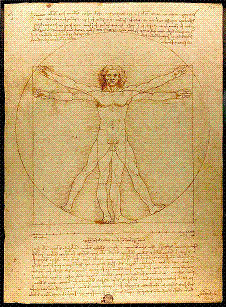Wikipedia describes homo economicus as “rational and broadly self-interested actors who have the ability to make judgments towards their subjectively defined ends.” Homo economicus is at the core of Chicago’s currently-disgraced efficient market theory (the disgrace of which, by the way, is creating a wave of interest in Chicago’s now-esteemed work in behavioral science, especially Richard Thaler’s research and book on decision architecture, Nudge – adherence to portfolio theory much?).
The narrow “strong” form of homo economicus has been discredited, and rightfully so. But is there a more “evolved’ form of homo economicus that still makes sense?
Perhaps rational self-interest is more than the filthy lucre that one can reasonably calculate. Incentives might also include:
- Social capital
- Quality of life benefits, such as human relationships and meaningful lives
- Long-term benefits (including beyond death, since your DNA lives on in your kids)
The second and third might explain “inequity aversion,” which monkeys and human beings have been shown to exhibit. In essence, experiments have shown that people will hurt themselves to punish others for being unfair. Using the narrow definition of rationality, this dynamic seems highly irrational. However, if you believe that inequity breeds instability and damages human relationships, there may be a rational incentive that underlies “inequity aversion” behaviors. And obviously, holding out rather than allowing yourself to be taken advantage of is a pattern of behavior that has clear economic advantages for the individual as well.
Also, it’s worthwhile to note that it’s not incentives, per se, that drive human behavior. It’s perception of incentives, which is variable from person to person. Note that this does not necessarily mean that some people are right and some people are wrong. Everyone might still be right, and a “homo economicus,” because we live in a world with the following characteristics: a) deep uncertainty, b) differences in individual preference, and c) differences in individual knowledge and understanding.
For instance, some people value personal relationships more than others. They may still be homo economicus in the broader sense of the term, making rational decisions based on their own incentives (that are very challenging to draw conclusions from in lab experiments – those poor doctoral students..). Even people who do not opt into a 401(k) when it is financially advantageous may be behaving as homo economicus, if they do not have an intellectual or visceral understanding of the future benefits that will accrue from the investment of their time (and money) today. People pay attention to the things that are important to them. As moronically obvious as this sounds, once you think of attention in evolutionary and biological rather than intellectual terms, the import is less obvious. When I was going to India for 6 months, I developed a laser focus on all things India-related, an almost physical phenomenon. Procrastination is natural output of this dynamic as well.
And if you believe all of this, not opting into a 401(k) might be a problem of knowledge and visceral understanding rather than irrationality. Emotions are biological-driven phenomena that are part of the decision-making framework. If I am enraged at you, the pleasure it will give me to throw a mug at your head outweighs my perception of the consequences. If my heart beats faster than yours in a given situation, I may perceive the decision at hand as riskier and assign a higher cost. I give because I feel good about it. If I sank into clinical depression every time I did something charitable, I would probably stop. That’s why people like to give to individuals rather than faceless masses – a phenomenon called “psychic numbing” – they feel better about it.
In my experience, people tend to make sense. Presuming irrationality has always seemed to me to be a somewhat condescending stance. Not all people will behave as I will, but I’ve found that their seeming irrationality is usually due to my inability to empathize in a deep way.
I don't mean to imply that people cannot be manipulated, or that people don't make decisions that are not in their best interests. Changing the way you frame the exact same question can affect the answer. The business of marketing is based on this. But there is an important distinction between viewing people as irrational and viewing people as rational subject to internal and external stimuli. Our perception of the rationality of others is inextricably linked to the freedom we are willing to allow them, and the standard of accountability to which we hold them up. I can't think of anything more important than this.


 RSS Feed
RSS Feed